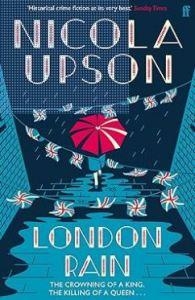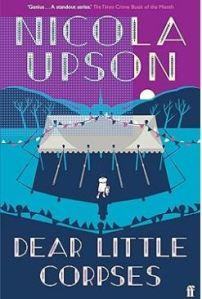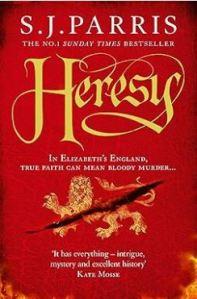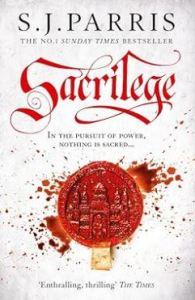I have been mulling over a theme for an new occasional series of Landing Tales blog posts. Perhaps not surprisingly, the germ of this new idea lies in my continued pre-occupation with reading detective novels.
Of late, my crime novel reading has branched out to include stories where the crime busting detective is a historical person. I have every now and then dipped into the series featuring Italian philosopher Giordano Bruno (1548-1600) by S J Parris. Lots of skulduggery, espionage and hair breadth escapes in Elizabethan England. What’s not to like? Though originally, I came at that series more from my interest in historical novels than crime. The author weaves what is known about Bruno’s life and fits into that his ficticious (or maybe not) assignments for spymaster Walsingham. However, what started me off recently thinking about featuring this sub-genre on the blog was my reading one of Nicola Upson’s detective stories featuring the Scottish writer Josephine Tey as her main character (Dear Little Corpses, 2022).




This is the second Upson novel that I have read, though inevitably not in series order. I have jumped from George V’s coronation in 1937 (London Rain, 2015) straight to the evacuation of children in World War II. I enjoyed the novels that I have read so far; as with the Bruno novels, the period detail is excellent. But I still feel a touch ambivalent about the idea of building a series around real people, albeit those dead and gone. What would they have thought about becoming a character in a novel? Maybe some people would secretly love to have their lives novelised after their death, particularly if they get to be crime solving heroes. Sadly, no royalty payments though. Would Bruno be chagrined that more 21st century readers probably know of him for the novels than for his own philosphical works? It is quite likely however, that Upson’s novels featuring Tey have brought the Scottish writer new readers, eager to find out about her work.
The twist with Nicola Upson’s crime novel characterisation, is that Josephine Tey was not in a sense a real person, but one of the literary personae of Inverness-based writer Elizabeth MacKintosh (1896-1952). Her other nom de plume was Gordon Daviot, used for her plays. Therefore, Nicola Upson’s novels could be said not really to feature a historic figure at all. This perhaps gives Upson writerly license to take the known facts of MacKintosh’s London literary life (in which she was known as Josephine Tey) and to graft them onto her series character’s life. And of course, to invent a whole different career for her as an amateur detective in various mysteries. I was amused to find that Margery Allingham had a small part to play in Dear Little Corpses and I could not help wondering whether the two writers knew each other in real life. I do hope so as they seemed to get on very well in this novel. Maybe a literary sleuthing partnership in the making?
Once I started doing a bit of idle Googling and jotting down the names that I came across, I realised that crime stories starring real historical figures as the detective form quite a significant part of the crime novel scene. A deep rabbit hole awaited me. As a result of my online research, I came across a wide range of series and one-off outings featuring literary luminaries as well as other historical figures. These came from different walks of life and spanned several centuries. This produced quite a list to work through. But where to start with my reading? I decided first to see what the library catalog had to offer to my latest crime fancy. I had come across some unlikely-seeming detective figures in my online trawling, so I decided to plump for one of the unlikeliest but the one that seemed to promise the most entertainment value. I do enjoy a touch of humor with my crime solving.
So, what amateur tec am I talking about? Well, you will just have to wait and see! I will let you know what I have been reading in a future blog post.

